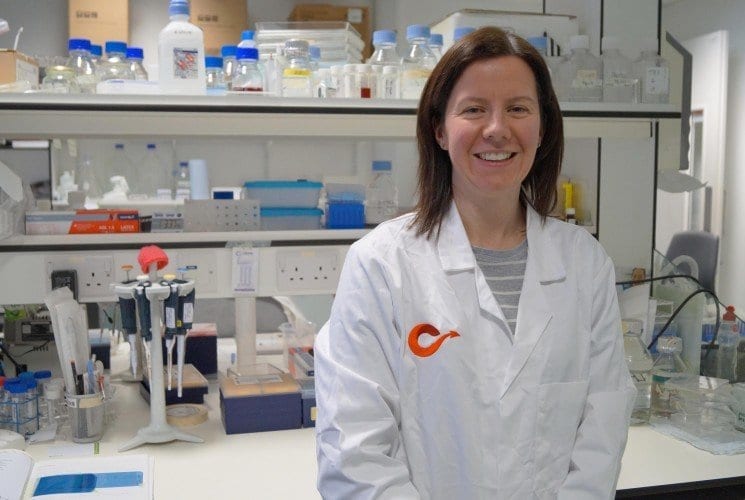Diagnosis
The signs and symptoms of Tuberous Sclerosis Complex, and how it is diagnosed
The age, time and background of a Tuberous Sclerosis Complex (TSC) diagnosis can vary dramatically between everyone living with the condition. However, the signs, symptoms and methods used to confirm a TSC diagnosis can be very similar.
Here, we provide an overview of the most common factors in a TSC diagnosis, and some common questions around TSC diagnosis.
What is the typical age for a TSC diagnosis?
TSC affects every individual with the condition very differently, even within single families. This means diagnosis could happen at any time during a person’s life, from prenatal to adulthood.
What are some of the first common signs of TSC?
Common issues that might lead to a possible diagnosis of TSC include:
- The discovery of heart tumours in a child pre-birth or in newborns
- A toddler not hitting their developmental milestones
- Seizures or ‘fits’ (known as ‘infantile spasms’) in newborns
- Specific skin markings or lesions (known as ‘ash leaf marks’), usually first present children and adolescents
- The onset of kidney problems in adults
- The diagnosis of a child, retrospectively leading to a genetic test for the condition in a parent or sibling
However, there is no single clinical feature that is absolutely specific to TSC.
How do clinicians diagnose TSC?
Usually, a diagnosis of TSC follows a result of careful physical examinations in combination with scans and imaging procedures, such as an MRI scan.
Clinicians may also use a checklist of characteristic features of TSC – such as abnormal areas of skin, or tumours in your eyes, brain, heart, lungs or kidneys – to confirm a diagnosis. Several tests will be needed to check for these features.
UK clinical guidelines for the diagnosis and management of TSC were released in 2018. The TSA published its own summary of these guidelines, which are available across NHS TSC clinics, to help clinicians understand the key steps to diagnosing TSC.
Genetic testing for TSC
It is possible to perform genetic testing to help identify TSC. This often takes place when TSC is suspected in an individual, with their immediate family often also tested. Genetic testing is correct in around 80% of cases.
If someone is identified as living with TSC and the gene responsible for TSC occurring identified, it is possible to perform a DNA test on their child prenatally. This is also possible in situations where a second child is expected, though both parents have no signs or symptoms of TSC yet the first child has been confirmed as living with the condition.
What happens after a person is diagnosed with TSC?
A diagnosis of TSC is not taken lightly and the clinician will only confirm that a person has TSC if they are sure, either through genetic testing or through a range of scans and examinations.
The clinician will possibly refer a person diagnosed with TSC to one of a range of specialist TSC clinics across the UK. Depending on the age of the diagnosed person and how TSC is (or may) affect them, a discussion about options to manage or treat symptoms of TSC may also occur. Follow-up scans and referrals to specialist clinicians (such as a neurologist) could also take place.
Easy read
People are told that they have TSC because of lots of different reasons. But, the Tuberous Sclerosis Association is here to help them no matter what.
What is the normal age someone is told they have TSC
TSC does things to everyone’s bodies differently. This is true even if different people in one family have TSC. This means that a person might be told that they have TSC at any age.
What are some of the first common signs of TSC
Things that might mean that someone is told that they have TSC include:
- If a person has lumps in their heart when they are a baby
- If a person has seizures or ‘fits’ when they are a baby or very little
- If they have marks on their skin that look a bit like leaves. Usually this happens only when a person is a teenager
- If a person has problems with their kidney when they are a grown-up
- If a person has their ‘genes’ (the things that make up the body) tested to see if they have TSC
However, TSC affects everyone differently. You might be told you have TSC but not have the problems listed above.
How a doctor finds out someone has TSC
Usually, a person is told that they have TSC after different tests or scans to check different parts of the body.
If a doctor thinks you might have TSC, they might look to see if you have things that lots of people who TSC also have. This might include patchy skin or lumps in different parts of the body. They might need to do different scans or tests to be sure. This is normal.
Download resources
Useful links
Related TSA pages
Make a one off or regular donation
£10 Can allow us to send a welcome pack to a family who has just received a life-changing TSC diagnosis, ensuring that they do not go through this time alone.
£25 Can help us develop materials that are included in our support services, flagship events or campaigns.
£50 Can provide laboratory equipment for a day’s research into the causes, symptoms, management or treatment of TSC.
To provide help for today and a cure for tomorrow







